FDI attraction to Vietnam: the myths versus the reality
Growth in Vietnam has positively impacted various sectors, including industrial property, serviced apartments, real estate, and manufacturing. Major contributors to this influx include countries such as South Korea, Singapore, Japan, and China. Vietnam’s attractive investment environment, strategic location, and favourable policies continue to make it a preferred destination for international investors.
 |
| Rizwan Khan, partner at Acclime Vietnam |
Vietnam boasts several notable success stories in its foreign direct investment (FDI) landscape. Samsung’s investment has significantly boosted the country’s electronics manufacturing sector, creating thousands of jobs and contributing to Vietnam’s export growth. Another success story is Intel, which established a large assembly and test facility in Ho Chi Minh City. This investment has not only enhanced Vietnam’s position in the global technology supply chain but also fostered the development of local suppliers and technology transfer.
These examples highlight how strategic investments by multinational corporations have played a crucial role in Vietnam’s economic transformation and integration into the global economy.
Vietnam has become an increasingly appealing destination for FDI due to a blend of strategic advantages and proactive government policies. One of the primary draws for investors in Vietnam’s low manufacturing costs. This makes the country a highly cost-effective location for businesses aiming to optimise their production expenses.
Additionally, Vietnam’s strategic geographic location offers easy access to both regional and global markets. This makes it an ideal hub for international trade and investment, providing businesses with a gateway to a broader market.
The government has invested heavily in upgrading the country’s infrastructure, including transportation, telecommunications, and utilities. These improvements support efficient business operations and logistics, making it easier for companies to establish and expand their operations in Vietnam.
Vietnam’s commitment to integrating into the global economy through various free trade agreements has opened up new opportunities for foreign investors. These agreements provide preferential access to key markets, further enhancing Vietnam’s appeal as an FDI destination.
By combining these strategic advantages with proactive government policies, Vietnam continues to attract significant foreign investment, contributing to its economic growth and development.
Challenges faced
Vietnam has made significant strides in attracting FDI over the past few decades. However, despite these positive results, the country faces several challenges that could hinder its ability to draw in quality, targeted foreign investment in the future. These challenges include the modest scale of the economy, limited openness, resilience, and competitiveness. To continue attracting quality FDI and ensure sustainable development, Vietnam must adopt a multifaceted approach.
One of the primary challenges Vietnam faces is an incomplete legal system and loose law enforcement. To address this, Vietnam should focus on strengthening its legal and institutional frameworks. This includes simplifying administrative procedures, ensuring transparency, and enforcing laws consistently. By creating a more predictable and stable business environment, Vietnam can enhance investor confidence and attract high-quality investments.
Insufficient infrastructure is another significant barrier to attracting FDI. Vietnam needs to invest in modernising its infrastructure, including transportation, energy, and telecommunications. Developing smart cities and industrial zones with state-of-the-art facilities can make Vietnam a more attractive destination for foreign investors. Additionally, improving logistics and supply chain networks will enhance the overall efficiency and competitiveness of the economy.
The quality of human resources remains a challenge, particularly for high-tech and knowledge-intensive industries. Vietnam should invest in education and vocational training to develop a skilled workforce that meets the demands of modern industries.
Collaborating with foreign companies to establish training programmes and research centres can also help bridge the skills gap and foster innovation. Vietnam has recognised the importance of green growth and digital transformation in attracting FDI.
By promoting sustainable practices and investing in renewable energy, Vietnam can pull in environmentally conscious investors. Additionally, embracing digital transformation and developing a robust digital infrastructure will position Vietnam as a leader in the digital economy, attracting tech-savvy investors and fostering innovation.
To improve its competitiveness, Vietnam should focus on fostering innovation and entrepreneurship. This can be achieved by providing incentives for research and development, supporting startups, and creating innovation hubs. Encouraging collaboration between universities, research institutions, and businesses can also drive technological advancements and create a vibrant innovation ecosystem.
Meanwhile, by strengthening regional and global integration, Vietnam can enhance its access to larger markets and attract investors looking to leverage these trade agreements. Additionally, aligning domestic policies with international standards and practices will further enhance Vietnam’s attractiveness as an investment destination.
While Vietnam faces several challenges in attracting quality FDI, a strategic and multifaceted approach can help overcome these obstacles. By addressing the challenges, Vietnam can continue to entice targeted foreign investment and achieve sustainable development. The future of FDI in Vietnam looks promising, provided these strategies are effectively implemented.
Vietnam, like other ASEAN countries, faces several challenges in attracting and sustaining FDI. Most of the challenges faced by Vietnam are similar to those of in Indonesia and the Philippines. Whereas Singapore and Malaysia have more advanced infrastructure and Singapore seems to engage high-tech and services oriented FDI with its highly skilled workforce. Overall, while Vietnam shares many challenges with its ASEAN counterparts, the extent and impact of these challenges vary, influencing the attractiveness of each country to foreign investors.
Despite Vietnam’s efforts, several challenges persist. Additionally, the global economic environment, marked by geopolitical tensions and economic uncertainties, poses risks to sustained FDI inflows. These challenges highlight the need for ongoing reforms and improvements to maintain Vietnam’s competitiveness as an FDI destination.
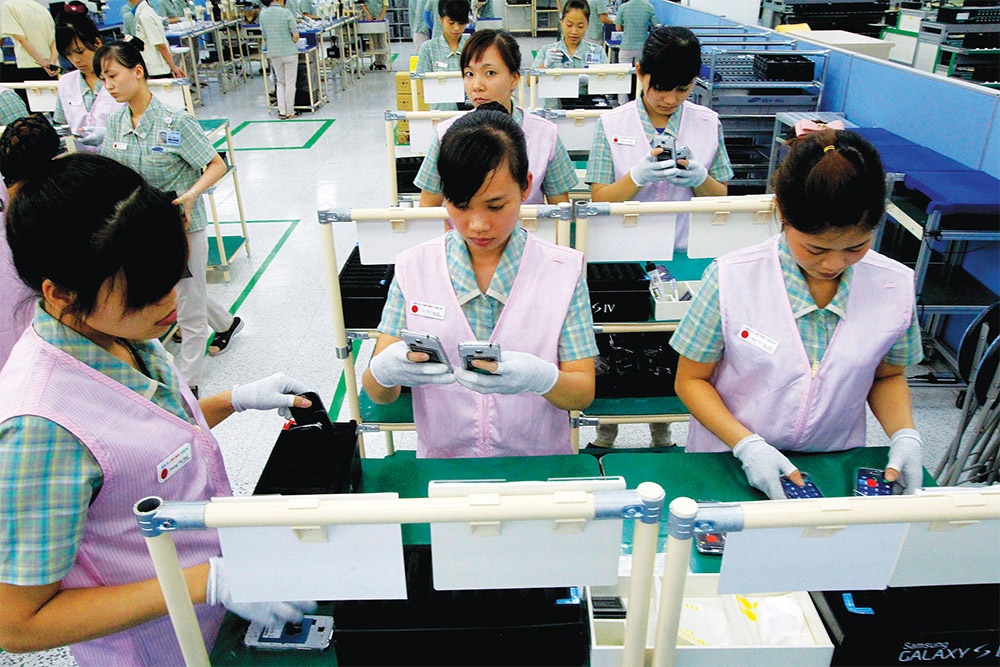 |
| Photo: Le Toan |
Bringing good results
Vietnam attracts and retains FDI through a combination of strategic policies and stronger conditions. The government has created a stable socio-political environment and continuously works on improving the business and investment climate. Vietnam’s strategic location in East Asia, coupled with its membership in multiple free trade agreements, enhances its appeal to foreign investors.
Additionally, the country offers competitive labour costs and a youthful workforce, which are significant draws for manufacturing and technology sectors. The government also focuses on high-quality foreign-led projects that use advanced and environmentally friendly technologies, aiming to integrate these projects into the global production network and value chain.
Vietnam’s commitment to infrastructure development, including transport and digital infrastructure, further supports its attractiveness. The government’s efforts to streamline regulations and improve corporate governance also play a crucial role in retaining investments. These factors collectively make Vietnam a compelling destination for FDI, helping to sustain its economic growth and development.
To enhance technology transfer in foreign-invested projects, the Vietnamese government might consider several strategic initiatives. Implementing and refining the Law on Technology Transfer could encourage the adoption of advanced and clean technologies while discouraging outdated and hazardous ones. Ensuring clear guidelines and registration processes for technology transfer agreements would help bring beneficial and up-to-date technologies into Vietnam.
Offering tax incentives for high-tech ventures and those that contribute to technological transfer and value chain participation could attract high-quality FDI. Additionally, promoting research and development initiatives by supporting the establishment of centres and fostering collaborations between foreign investors and local firms might further enhance technological advancement.
Strengthening intellectual property rights protection could ensure that innovations and technologies are adequately safeguarded, encouraging more foreign investors to bring their cutting-edge technologies to Vietnam. By focusing on these areas, Vietnam could maximise the benefits of technology transfer from foreign-led projects, boosting its technological capabilities and overall economic development.
A country becomes attractive for FDI through a combination of several key factors. Economic stability, marked by consistent growth, low inflation, and a stable currency, is fundamental. A transparent regulatory environment with strong property rights and minimal bureaucratic obstacles further enhances the appeal. Efficient business operations are supported by well-developed infrastructure, while a skilled and cost-effective labour market is a significant draw for investors.
Additionally, a large and expanding domestic market offers ample opportunities for business growth. Political stability is crucial as it reduces investment risks. Competitive tax rates and incentives, access to natural resources, openness to international trade, and advanced technology infrastructure also play vital roles. Collectively, these elements create a conducive environment that encourages foreign investors to contribute to the host country’s economic development.
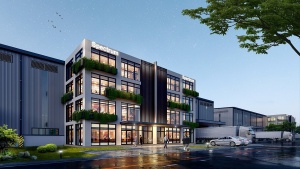 | Industrial property ready for welcoming high-tech FDI wave The industrial property sector, particularly Soilbuild, is enhancing its factories and services to draw in foreign direct investment (FDI) in high technologies |
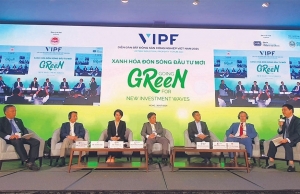 | Industrial property could become next key FDI magnet Experts at last week’s Vietnam Industrial Property Forum 2024, co-organised by Vietnam Investment Review and the Vietnam Industrial Real Estate Association in Ho Chi Minh City, confirmed that stable foreign investment growth is providing a strong foundation for the industrial property sector. |
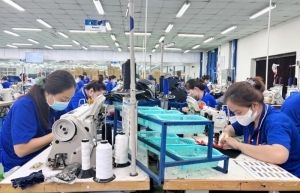 | Mekong Delta urged to strengthen connectivity to attract FDI firms Facilitating the foreign direct investment (FDI) flows is an effective solution to drive the development in the Mekong Delta region, according to insiders. |
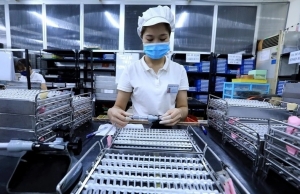 | Discerning selection helps Vietnam attract high quality FDI projects: minister Vietnam’s foreign direct investment (FDI) attraction continues to prosper in July, and quality of FDI capital flows increase sharply thanks to careful project selection, Minister of Planning and Investment Nguyen Chi Dung said at a recent regular Government meeting last month. |
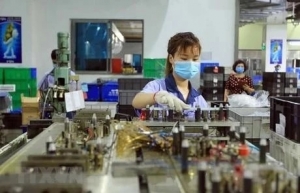 | Hai Phong remains FDI magnet The northern port city of Hai Phong has been a foreign investment magnet, hosting 967 FDI projects underway worth 30.65 billion USD. |
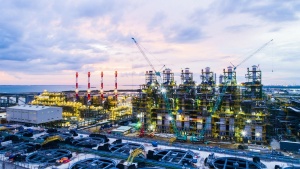 | Ba Ria-Vung Tau steps up FDI attraction The southern province of Ba Ria-Vung Tau is emerging as a prime investment destination in Vietnam, driven by a favourable investment climate and ambitious development plans. |
What the stars mean:
★ Poor ★ ★ Promising ★★★ Good ★★★★ Very good ★★★★★ Exceptional
Related Contents
Latest News
More News
- Site clearance work launched for Dung Quat refinery upgrade (February 04, 2026 | 18:06)
- Masan High-Tech Materials reports profit: a view from Nui Phao mine (February 04, 2026 | 16:13)
- Hermes joins Long Thanh cargo terminal development (February 04, 2026 | 15:59)
- SCG enhances production and distribution in Vietnam (February 04, 2026 | 08:00)
- UNIVACCO strengthens Asia expansion with Vietnam facility (February 03, 2026 | 08:00)
- Cai Mep Ha Port project wins approval with $1.95bn investment (February 02, 2026 | 16:17)
- Repositioning Vietnam in Asia’s manufacturing race (February 02, 2026 | 16:00)
- Manufacturing growth remains solid in early 2026 (February 02, 2026 | 15:28)
- Navigating venture capital trends across the continent (February 02, 2026 | 14:00)
- Motivations to achieve high growth (February 02, 2026 | 11:00)

 Tag:
Tag:


















 Mobile Version
Mobile Version